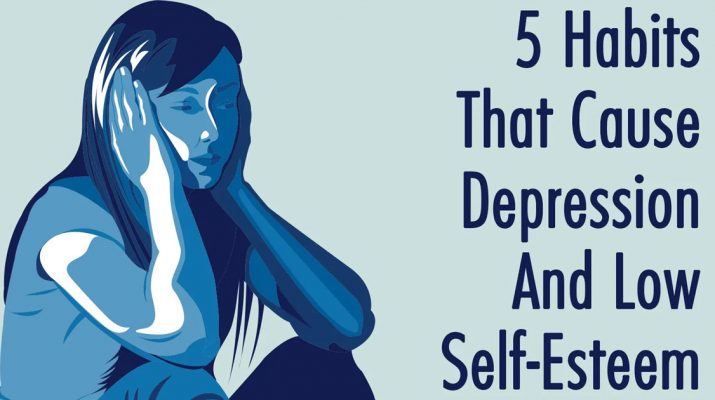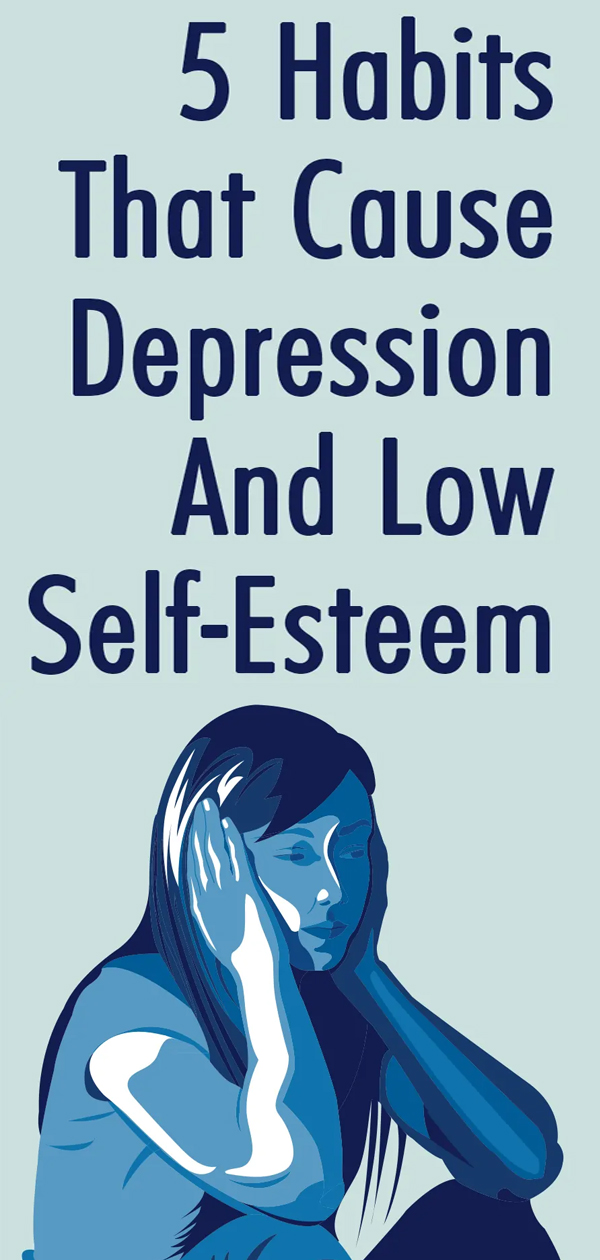Research has shown that when you have low self-esteem, you are much more prone to depression than at any other time. That’s because your negative thoughts about yourself can easily develop into negative thoughts about everything around you. Little by little, you’ll enter a spiral of negativity that is really hard to get out of, leading directly to low self-esteem and depression.
The best way to raise your self-esteem is through positive thinking. You have to take a long, hard look at your daily habits and identify the toxic ones that lead you towards the pit of depression. That’s never easy because being rational and critical of yourself when you have low self-esteem is nearly impossible. However, the sooner you learn to tear down those barriers of negativity, the easier it’ll become for you to control your mindset later in life.
Rewire your brain for happiness and positivity rather than self-deprecating thoughts and negativity, and you’ll find yourself much more prone to success. Here are some habits you’ll want to train yourself out of to avoid low self-esteem and depression.
Here Are 5 Habits That Cause Low Self-Esteem And Depression
“Aim high and don’t sell yourself short. Know that you’re capable. Understand that a lot of people battle with a lot of things – depression, body image or whatever else – so know that it’s not just you. You’re not alone.” – Holly Holm
1. Perfectionism
No matter how many times someone might tell you it’s good to be a perfectionist, it just means you’re setting high (and often unachievable) standards for yourself. Perfectionists are much more likely to struggle with low self-esteem and depression, anxiety, and self-deprecating feelings. When you set the bar too high and then expect yourself to jump over it, accepting failure becomes that much harder.
Perfectionism can lead to a fear of trying anything new because you’ll be scared of failing. The way to teach yourself out of your perfectionist habits is recognizing that failure is a valid and effective way to learn. People learn best from their own mistakes. If you stop being afraid of them, you’ll see that not all mistakes are fatal. Focus on the bigger picture and remember that there are more important things in life than getting everything perfect.
2. Projection
This is very common with people who suffer from anxiety, low self-esteem, and depression. When you have self-esteem issues, you tend to project them onto others and imagine that they’re seeing you the way you see yourself. You start doubting every relationship you’ve ever had and wonder if everyone secretly hates you. That stems from the insecurity you have with yourself and the worry that you never really know what anyone’s thinking.
If you find yourself thinking like that, ask yourself whether you’d think about someone you love in that way. Hold yourself to the same standard you hold your friends and recognize your own value. That way, you’ll realize that your self-esteem issues are mostly self-inflicted rather than caused by anyone around you.
3. People-Pleasing
It’s never possible to please everyone, but a person with low self-esteem will certainly try their best. That’s because they have a constant need for validation and proving their worth. Being scared to say “no” to people stems from a deeper fear of rejection and being left on your own. Always remember to put yourself first. Real friends won’t expect you to be a yes-man all the time.
If you try to please everyone all the time, someone will take advantage of you, leaving you hurt. Accept that confrontation is a necessary evil and don’t let other people’s requests and desires overshadow your own.
4. Guilt
Everyone makes mistakes. Everyone fails at some point in their lives. People with low self-esteem and depression find it very hard to move on from that. You may be tempted to constantly blame yourself and remind yourself of that mistake. As this spiral continues, you’ll begin to believe that you’re the problem, and deprecate your self-worth because of what’s happened.
This is known as unhelpful guilt – when you condemn yourself for things that you really couldn’t have done differently. Learn to forgive yourself the way you would forgive others. You deserve forgiveness just as much, and you deserve to be kinder to yourself.
5. Regret
Living in the past never did anyone any good. You can’t constantly think back to the things you did wrong or the ways you failed. The past is in the past, and there’s nothing you can do to change it now. Trapping yourself in thoughts of what might have been or should have been is not a productive or a healthy attitude towards self-esteem.
Remind yourself about everything you’ve done right in the past too, the times that you’ve made people happy and the positivity you’ve spread with your actions. This will show you that life isn’t just black and white. There are highs as well as lows. Ultimately, learn to look forward to the future and live in the present, because no matter how hard you try, the past cannot be changed.
Final Thoughts
Learning to accept yourself is one of the most important skills to adopt for a positive, and successful life. Self-confidence is the best way to protect yourself from depressing thoughts and feelings, and it shows you in your best light when you meet new people.
Try to escape the bad habits that can cause you to spiral back down – it’s all about training yourself into thinking positively about yourself and the things you do. It might require some work, but that’s okay. If you’re willing to put in the labor, you’ll find that your life will change for the better once you stop these habits that cause low self-esteem and depression.


